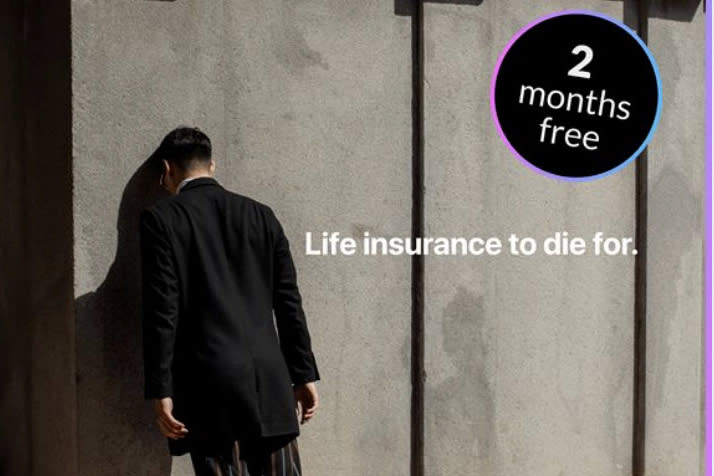Life insurance advert banned for 'trivialising male suicide'

An advert for life insurance has been banned for trivialising male suicide and depression.
The Derby-based insurance provider DeadHappy showed a distressed man leaning his head against the wall alongside the text “life insurance to die for”.
Watchdogs received a complaint about the post, which appeared on Facebook in September, claiming it was alluding to male youth suicide.
After launching an investigation, the Advertising Standards Authority (ASA) ruled the advert was “irresponsible”.
READ MORE: The most common mental health conditions - and where to get help
Nearly one in five (19.7%) people aged 16 or over in the UK showed signs of depression or anxiety in 2014, Mental Health Foundation statistics show.
In the US, 17.3 million adults (7.1%) had at least one major depressive episode in 2017, according to the National Institute of Mental Health.
Last year, 6,859 people took their own life in the UK and Ireland, 10.9% more than in 2017, Samaritans’ statistics show. Suicide is up to four times more common in men.
In the US, 47,173 Americans died by suicide in 2017, making it the tenth biggest cause of death, according to the American Foundation for Suicide Prevention.

DeadHappy responded to the investigation by pointing out “depression” and “suicide” were not mentioned in the advert.
It added the post was part of a larger campaign that focussed on “the bizarre and absurd”, with the eye-catching campaign being chosen to stop social-media users scrolling past.
“While the ad did not refer to depression or suicide, we were concerned about the image,” an ASA spokesperson said.
“The young man was alone, leaning forward with his head against the wall and his back to the audience.
READ MORE: Thousands of people are using viral hashtag to explain feelings of depression
“We considered those elements, together with the shadowing in the image, created the impression he felt isolated and was in despair.
“In the context of an ad for life insurance, which we understood covered suicide, we considered those who saw the ad were likely to associate the man’s posture as alluding to suicidal feelings.”
DeadHappy’s logo, a laughing skull, also appeared.
“The ad featured an image of a laughing skull, a two-months’ free promotional discount code ‘SKULLMAN’ and the strapline ‘life insurance to die for’, which appeared prominently alongside the man,” the spokesperson said.
“We considered those elements, taken together and in combination with the image, trivialised the issue of suicide.
READ MORE: Kate Middleton's brother James reveals she helped his recovery from depression
“We considered by trivialising the issue of suicide and alluding to it to promote life insurance, the ad was likely to cause serious offence to some people, including those who had been personally affected by suicide, and was irresponsible.
“We told DeadHappy to ensure their future ads for life insurance were responsible and unlikely to cause serious offence”.
DeadHappy, a startup, has said it hopes to remove the taboo surrounding death. It claims to be the UK’s “first fully digital pay-as-you-go life insurance provider”.
Among its quirks was a platform called ‘Deathwish’, similar to a will, that allows a person to specify how they want any insurance payouts to be used.


